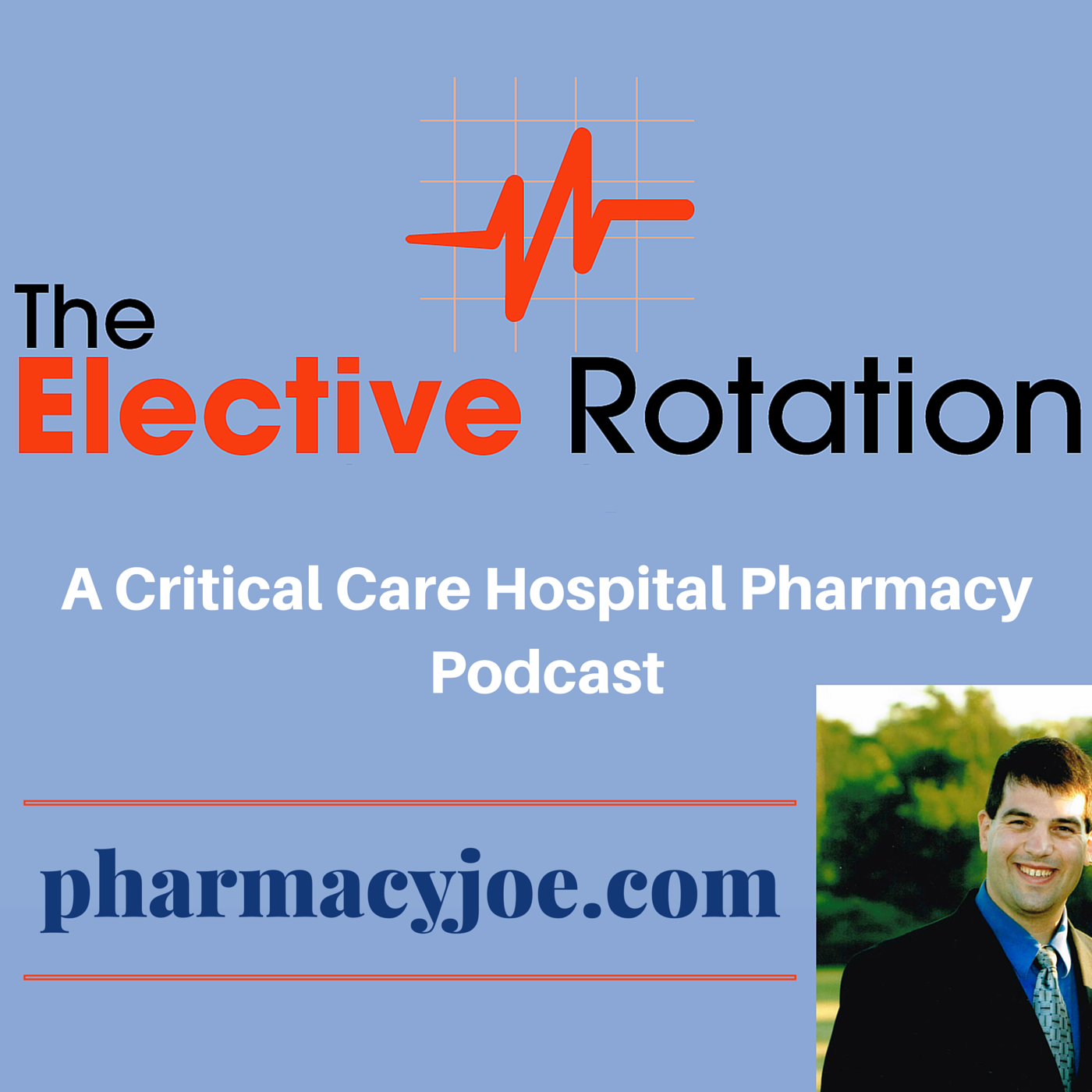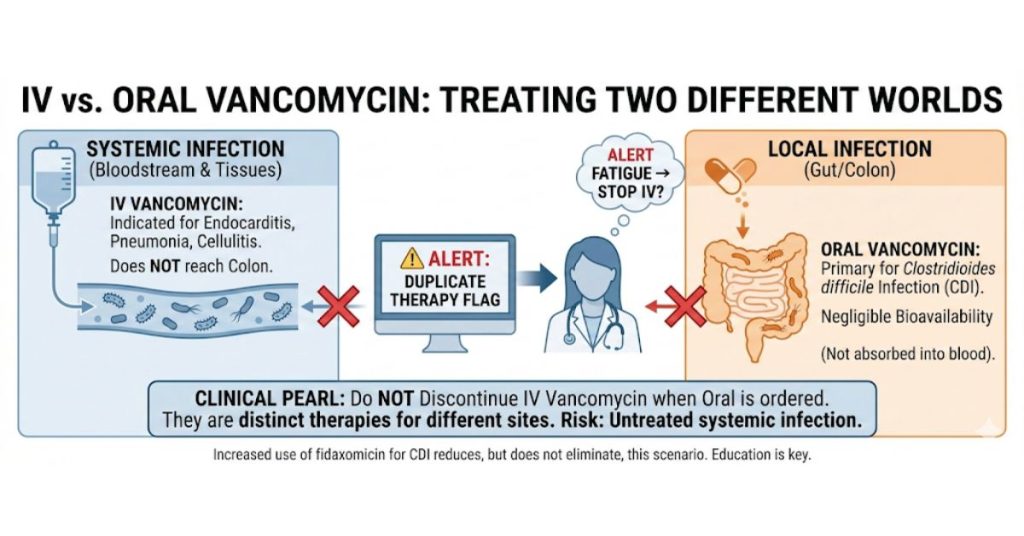In this episode, I’ll discuss whether ICU patients benefit from daily QTc interval monitoring during antipsychotic use for delirium. Subscribe on iTunes, Android, or Stitcher QTc prolongation is a known side effect of antipsychotic use. While the QTc itself is only a number on a sheet of paper, a prolonged QTc is often used as […]
A free twice-weekly podcast where you can listen to critical care and hospital pharmacy information
Subscribe to the #1 ranked critical care and hospital pharmacy podcast, The Elective Rotation here:
Episode 1096: Why is glucagon not given a strong recommendation to treat beta blocker or calcium channel blocker poisoning?
In this episode, I’ll discuss why glucagon is not given a strong recommendation in the AHA guidelines for cardiopulmonary resuscitation. Subscribe on iTunes, Android, or Stitcher Glucagon is often considered a potential treatment for beta-blocker and calcium-channel-blocker overdose because it can increase heart rate, blood pressure, and cardiac contractility, regardless of whether beta receptors or […]
Episode 1095: Does Routine Magnesium Supplementation in ICU Patients Reduce Tachyarrhythmias?
In this episode, I’ll discuss whether routine magnesium supplementation of ICU patients reduces tachyarrhythmia incidence. Subscribe on iTunes, Android, or Stitcher It is routine practice to give ICU patients supplemental IV magnesium if their plasma level is below the normal lab range, and this practice is hoped to reduce the incidence of new onset atrial […]
Episode 1094: Keep This Trick Up Your Sleeve For Intrathecal Baclofen Withdrawal
In this episode, I’ll discuss a case report on the management of intrathecal baclofen withdrawal. Subscribe on iTunes, Android, or Stitcher Managing a patient who is experiencing withdrawal from intrathecal baclofen can be incredibly challenging, especially if resuming the intrathecal baclofen is not an immediate option. A group of authors recently published in AJHP a […]
Episode 1093: If You Like Half-Dose Alteplase for PE, Here is the Study You’ve Always Wanted
In this episode, I’ll discuss an article comparing half-dose to full-dose alteplase for pulmonary embolism. Subscribe on iTunes, Android, or Stitcher The risk of hemorrhage is the major drawback to therapy with alteplase for any indication. When used for pulmonary embolism, a long-standing research question has been whether 50 mg of alteplase can treat PE […]
Episode 1092: Should hot or cold compresses be used to treat extravasation?
In this episode, I’ll discuss when to use a cold or warm compress to treat extravasation. Subscribe on iTunes, Android, or Stitcher Extravasation is a complication of IV therapy that refers to the infiltration of tissues with a medication that is an irritant or vesicant. The only difference between infiltration and extravasation is that the […]
Episode 1091: What is iatrogenic hyperchloremia and what is so bad about it?
In this episode, I’ll discuss iatrogenic hyperchloremia. Subscribe on iTunes, Android, or Stitcher Iatrogenic hyperchloremia occurs when excessive chloride levels occur during the treatment of another condition. While loss of hypotonic fluids via excessive carbonic anhydrase inhibitor use is probably the first thing a pharmacist thinks of for iatrogenic causes of hyperchloremia, this is a […]
Episode 1090: Potential reasons for an unexpected positive urine barbituate screen
In this episode, I’ll discuss potential reasons for an unexpected positive urine barbiturate screen. Subscribe on iTunes, Android, or Stitcher When a urine drug screen comes up positive for barbiturates unexpectedly, healthcare practitioners often suspect the result is a false positive. Both ibuprofen and naproxen have been reported to cause a false positive urine barbiturate […]
Episode 1089: More support for the IDSA’s position on the CAP guidelines
In this episode, I’ll discuss a study that addresses the controversy over giving patients with viral infections antibiotics in the Community Acquired Pneumonia guidelines. Subscribe on iTunes, Android, or Stitcher As discussed in episode 1088, new guidelines for treating patients with community-acquired pneumonia were published earlier in 2025 by the American Thoracic Society, but unlike […]
Episode 1088: All My Antibiotics: The CAP Guideline Drama
In this episode, I’ll discuss the recent conflict between ATS and IDSA over the Community Acquired Pneumonia guidelines. Subscribe on iTunes, Android, or Stitcher New guidelines for treating patients with community-acquired pneumonia were published earlier in 2025 by the American Thoracic Society, but unlike previous versions, these were not endorsed by the Infectious Disease Society […]
Episode 1087: Make sure newbie hospital pharmacists (and students) know this about vancomycin by multiple routes of administration
In this episode, I’ll discuss whether it is ever appropriate for a patient to be on vancomycin by more than one route of administration. Subscribe on iTunes, Android, or Stitcher While IV vancomycin is indicated for a variety of infectious diseases, oral vancomycin is primarily used to treat Clostridioides difficile infection (CDI). Unlike IV metronidazole, […]
Episode 1086: Having trouble getting IV levetiracetam approved? Try this study…
In this episode, I’ll discuss the efficacy of IV push levetiracetam over slow IV infusions. Subscribe on iTunes, Android, or Stitcher IV levetiracetam is FDA labeled to be infused slowly, over 15 min. Rapid IV push administration has gained popularity with several studies supporting its safety, and some of these have been discussed recently in episode1056. […]
- « Previous Page
- 1
- 2
- 3
- 4
- …
- 93
- Next Page »

